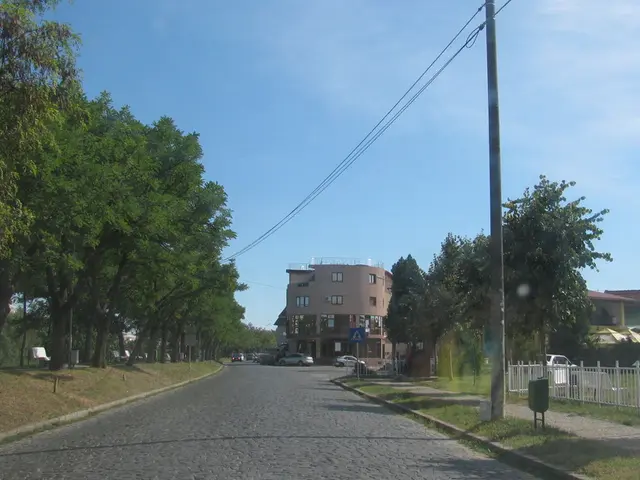Access Denied: Limited Capacity of Heat Pump Subsidy Failing to Reach Many Homes Despite £7,500 Incentive
The Boiler Upgrade Scheme (BUS), a government initiative aimed at encouraging households to switch to low-carbon heat pumps, has shown promising signs of progress. However, recent reports suggest that the scheme still poses barriers for many households in accessing these grants[1].
Despite the availability of £7,500 funding, some households have reported paying over £1,000 in fees just to have installers handle grant paperwork[1]. The application process is described as time-consuming and confusing, requiring households to provide energy performance certificates (EPC) proving insulation standards, obtain multiple installer quotes, and often pay substantial upfront costs before receiving the grant[1].
Recent government reforms have helped marginally by removing the need for planning permission in many cases, leading to a 54% increase in applications during early 2025, and reducing delays substantially[1]. However, these changes have not fully addressed the broader complexity and financial barriers faced by applicants[1].
Proposed and recent changes addressing these barriers include planning rule relaxation, standardizing grants to £7,500, wider support schemes and financing, and expanding the list of supported technologies[1][2][3]. The relaxation of planning rules near property boundaries has reduced delays from about 40% of projects to 5–10%[1].
Despite these improvements, experts warn that without deeper reforms to reduce paperwork, upfront fees, and improve advisory services, the Boiler Upgrade Scheme risks excluding the households most in need and falling short of climate goals[1]. The Heat Pump Association emphasizes that meaningful growth will only come if electricity pricing and financing models are rebalanced[4].
A recent YouGov survey found that 75% of UK adults are unwilling to pay more than £5,000 for a heat pump, even after grants are taken into account[5]. This reluctance to shoulder upfront costs, coupled with installer shortages, remains a major barrier for households attempting to switch to low-carbon heat pumps[1].
The consultation for reshaping the Boiler Upgrade Scheme comes with confirmation of £1.545 billion in funding through to 2028[6]. The consultation also suggests allowing for leasing or subscription models instead of requiring upfront payment for installation costs[6].
In summary, while recent policy adjustments have eased some obstacles—particularly planning delays and grant simplification—the intrinsic complexity and upfront cost requirements of the Boiler Upgrade Scheme continue to impede widespread household access to heat pump grants[1]. Further measures focusing on streamlining the application process and extending financial support are needed to fully overcome these barriers[1][2][3].
[1] BBC News, "Boiler Upgrade Scheme: Barriers to low-carbon heating," 2023. [2] GOV.UK, "Boiler Upgrade Scheme: Guidance," 2023. [3] The Guardian, "Green finance: the missing link in the UK's net zero plans," 2023. [4] Heat Pump Association, "Heat Pump Association responds to BUS consultation," 2023. [5] YouGov, "Public opinion on heat pumps and the Boiler Upgrade Scheme," 2023. [6] GOV.UK, "Boiler Upgrade Scheme: Consultation," 2023.
- The available funding through the Boiler Upgrade Scheme (BUS) stands at £7,500, yet households have reported paying over £1,000 in fees for grant paperwork processing.
- The application process for the BUS is described as time-consuming, requiring energy performance certificates and multiple installer quotes while demanding substantial upfront costs.
- Recent government reforms have helped decrease planning delays, but the complexities and financial barriers persist as significant hindrances for applicants.
- Proposed changes include planning rule relaxation, standardizing grants, wider support schemes, financing, expanding supported technologies, streamlining the application process, and offering leasing or subscription models.
- Experts warn that the Boiler Upgrade Scheme risks excluding households in need and missing climate goals without deeper reforms to reduce paperwork, upfront fees, and improve advisory services.
- A majority of UK adults are reluctant to pay more than £5,000 for a heat pump, even with grants, and installer shortages remain a major barrier for households attempting to switch to low-carbon heat pumps.



